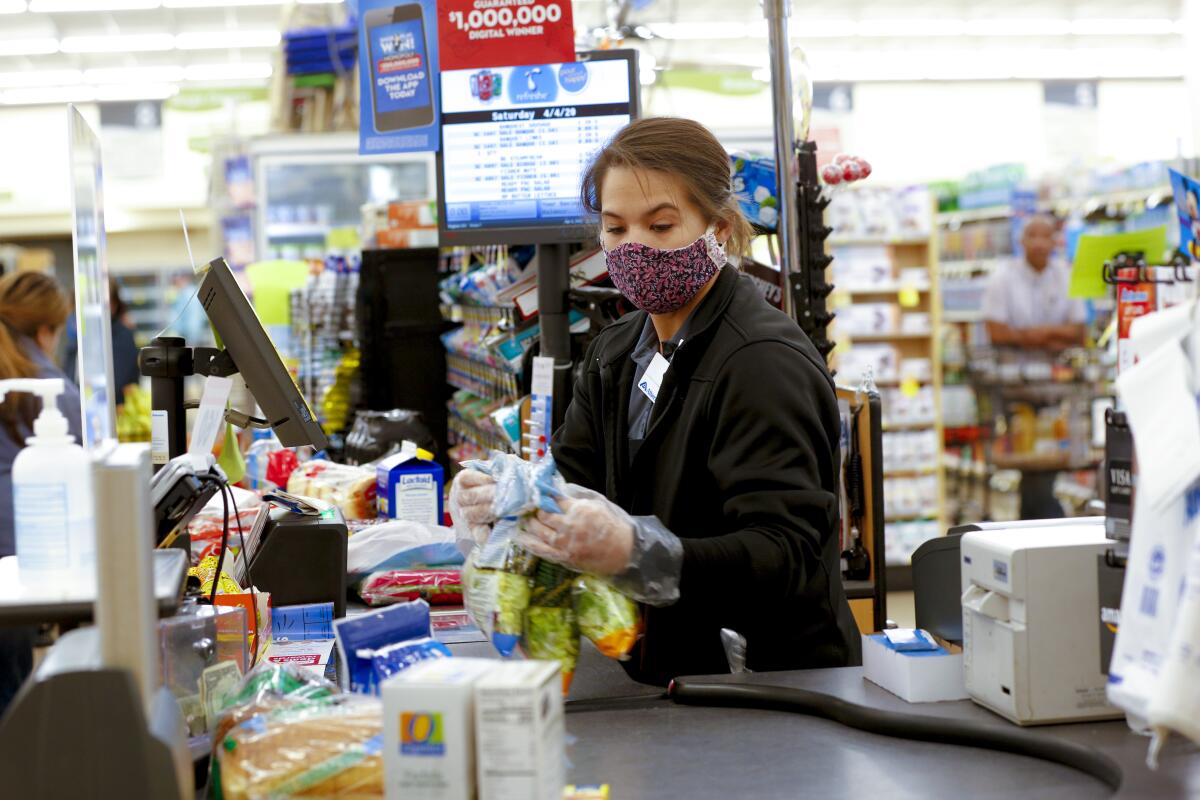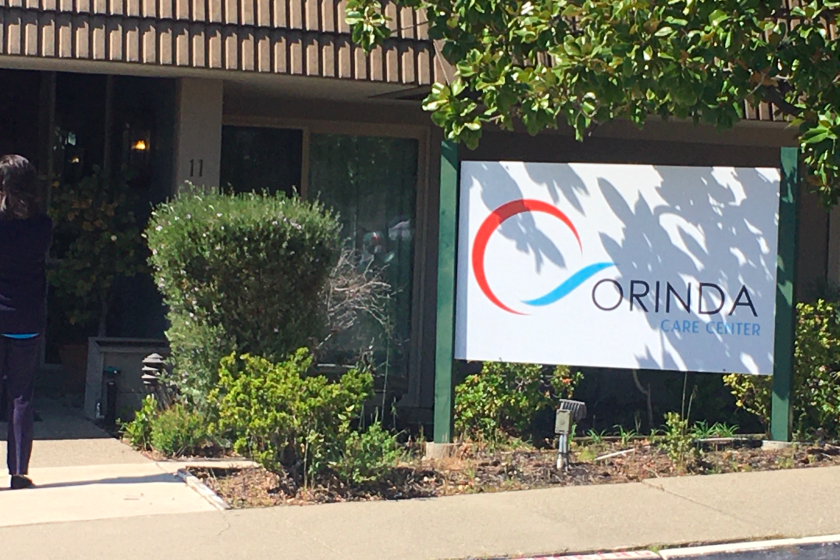Grocery store workers, customers in Glendale now required to wear face masks

Those working in grocery-store checkout lines and stocking pharmacy shelves will have to start wearing protective face masks, following an emergency order made Tuesday by Glendale City Council members.
Employees of what are deemed essential businesses and allowed to operate during the coronavirus emergency — including restaurants, hotels, grocery stores and drug stores — are required to wear a barrier that covers their nose and mouth, according to the order.
Customers at those businesses will have do the same, city spokeswoman Eliza Papazian said.
Cashiers at Ralphs, Vons or other grocery stores “might be carriers and not even know it — and they’re standing 2 feet from customers,” said Councilwoman Paula Devine, who proposed the requirement.
The order comes as confirmed coronavirus cases continue to grow in Glendale and Los Angeles County. To date, there are 194 cases of the virus that causes COVID-19 in Glendale and 7,955 cases across the county.
Los Angeles adopted a similar policy just hours before Glendale followed suit. Burbank has also instituted a face-mask mandate.
Glendale city staff members are still working out the details of implementation, but Papazian said it will likely be similar to L.A.’s order, where employers are required to provide face coverings or reimburse employees for the cost of protective gear they buy.
Protective face coverings do not have to be surgical face masks, which have been harder to find since the pandemic hit locally, Papazian said.
Handmade coverings using scarves and rubberbands or hair-ties will suffice, she said.

